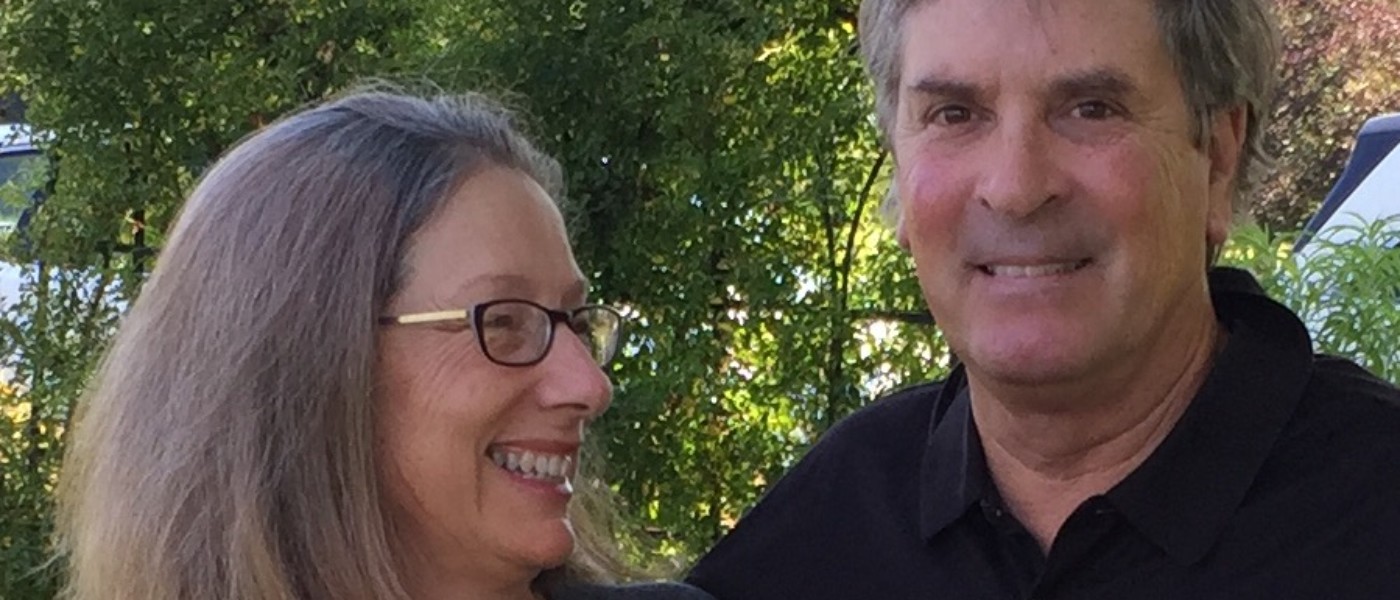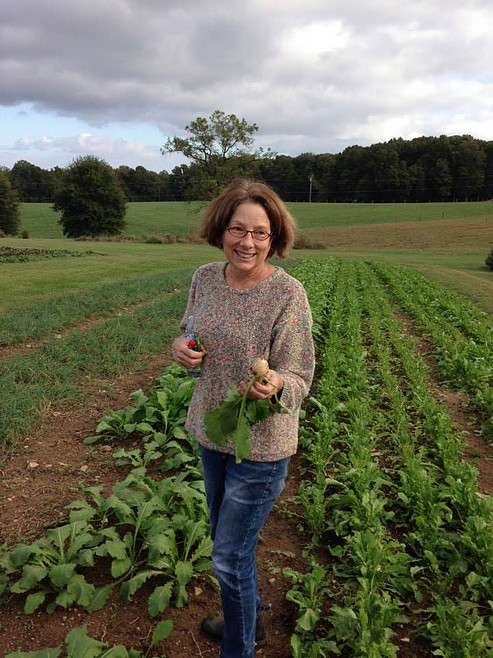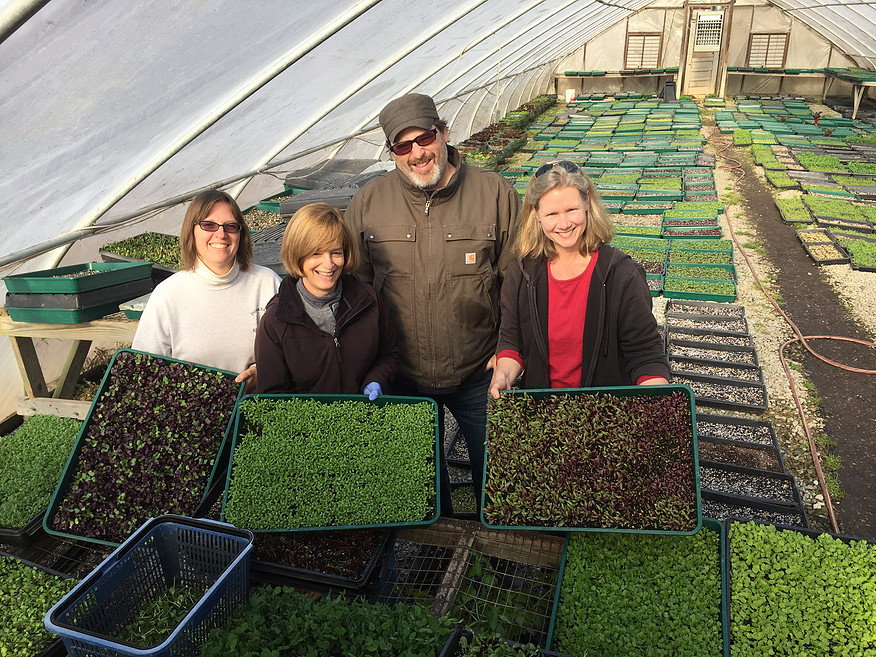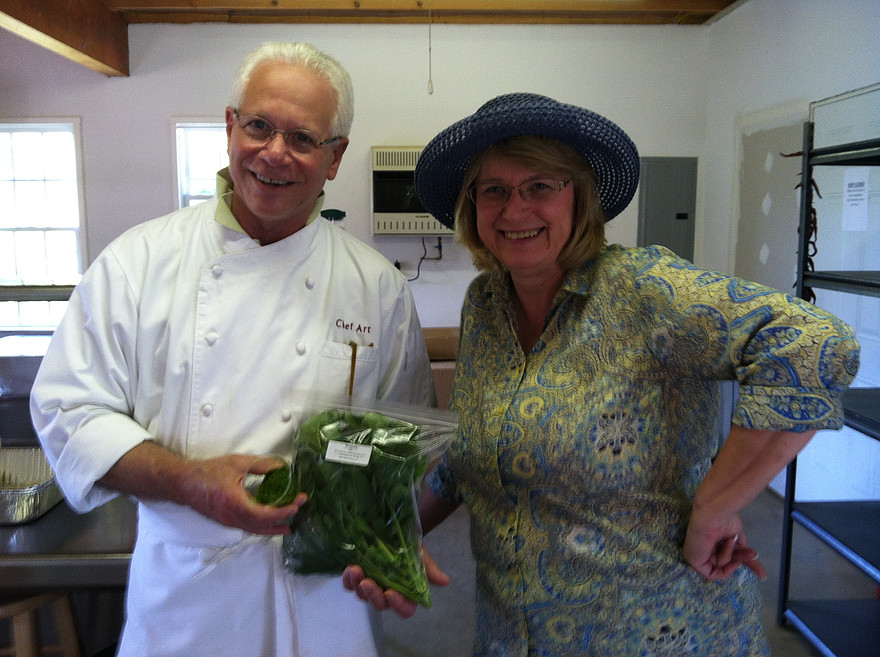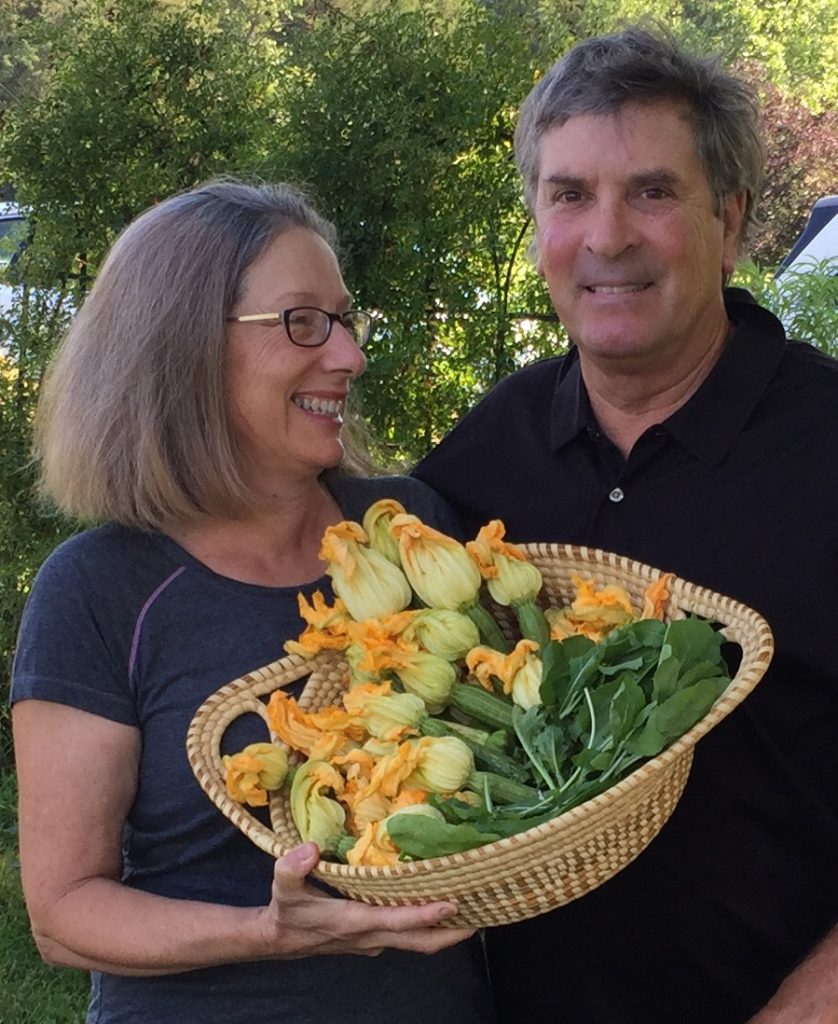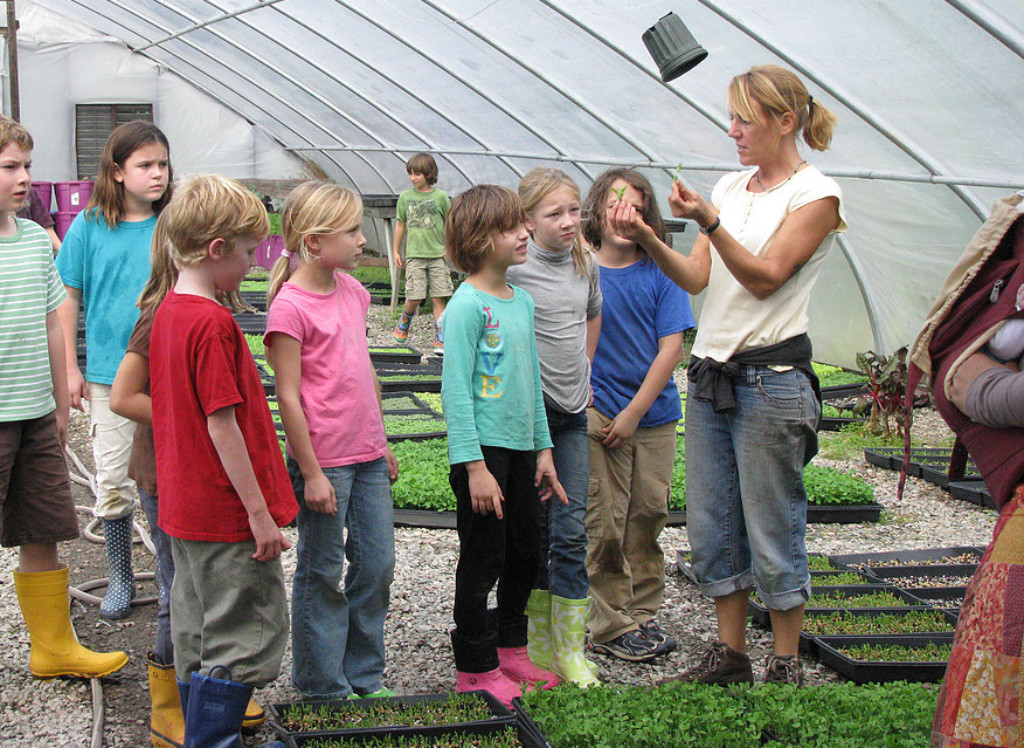The year 1985 was a terrible one for farmers in the Midwest and across the country. It was the height of the Farm Crisis, which forced hundreds of thousands of farm families into foreclosure. It was also the year that Jo Pendergraph and her husband Rob founded Manakintowne Farm in Powhatan County, Virginia. Jo explains, “We did not know what we were getting into when we began gardening in 1985!”
Jo and Rob were inspired to be more self-sufficient by the writings of Ralph Waldo Emerson, the Foxfire books, Alice Waters, Organic Gardening magazine, Rob’s parents who were in the nursery business, excellent gardening neighbors, and the restaurant where Jo’s sister was the baker. Jo remembers, “We were starting from a different place than the small and medium sized farms of the mid-80s, who were so negatively impacted by high interest rates and having to compete with subsidized megafarms.” Jo recalls, “We approached farming from a “small is beautiful” philosophy, rather than ‘bigger is better.’” She laughs, “We did not think of ourselves as conventional farmers, and certainly other farmers did not!”
Even today Jo and Rob think of themselves more as gardeners than farmers. Jo says, “That’s because we grow a huge number of crops in a series of gardens and greenhouses, rather than in monocropped acreage.” She continues, “We grow international and heirloom varieties of produce bred for flavor—European, Asian, Mediterranean, Central and Latin American, global cuisine locally produced, as well as our own region’s specialties such as collards, kales, tomatoes and alliums.”
Though it’s a very diversified operation, Manakintowne Farm is very clearly a farm, with Jo and Rob drawing their income from the farm by growing good food for a chef community around them. Rob and Jo began cultivating these chef relationships far before the term “farm to table” came into common use. Manakintowne Farm got its start in “farm to table” right from the get-go. As Jo explains, “Once we tasted the difference fresh herbs and fresh produce made in our own cooking, we knew we were onto something any good chef would appreciate. Our first customer was a creative and appreciative chef. Our customers continue to be the creative chef and the home cook who demand the best.”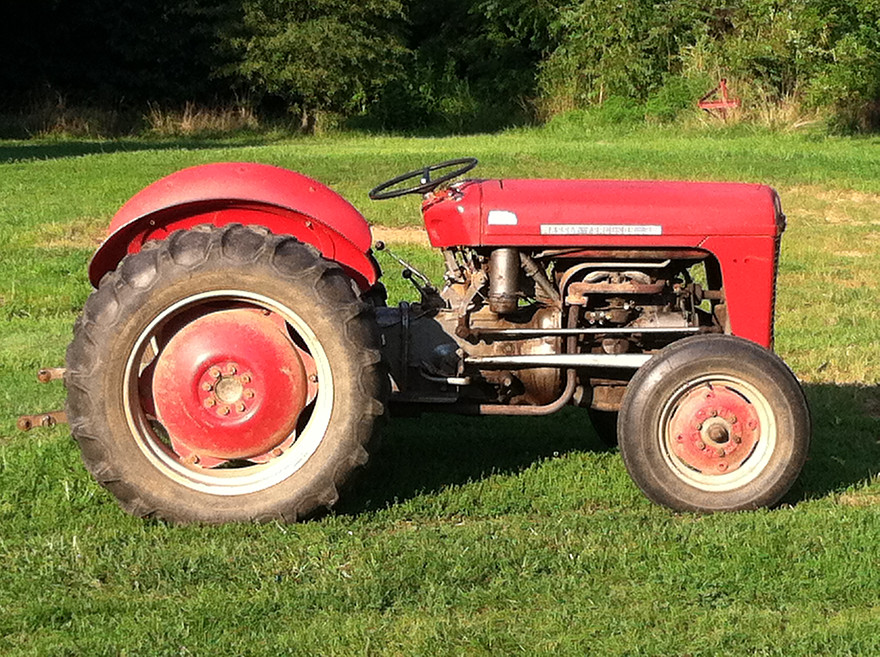
Like the majority of farmers, off-the-farm jobs allowed Jo and Rob to become farmers. Also like the majority of today’s young farmers, the farm was not passed down to Jo and Rob. Jo explains, “Rob’s job allowed us to save and become creditworthy so that we could buy 10 acres and get started on our own land. We were able to grow the business at the right pace for our family, so that Rob joined me full time on the farm only when the numbers worked in favor of all his efforts being here.”
“Once we tasted the difference fresh herbs and fresh produce made in our own cooking, we knew we were onto something any good chef would appreciate.
Jo has this advice to share with young would-be farmers: “Farming is a wonderful dream, but it is a business like any other. The numbers have to work and unless you are wealthy, it will take lots of ingenuity and hard work to be successful.” Jo assures us, “It is certainly worth it, if you want a life on the land that uses everything you have and lots of you that you didn’t know you have!”
Jo and Rob see their mission as farmers to be good stewards of the land and to bring delicious, healthy food to people. As stewards of the land, they focus on the health of the soil and use sustainable farming methods like crop rotation, cover cropping, composting and mulching. Their “small is beautiful” philosophy translates right down to the garden beds, which are 100’ x 4’ or smaller, so that each bed and each crop gets the specific attention it needs. While not certified organic, Manakintowne Farm uses only natural fertilizers and botanically derived pesticides that are approved for organic agriculture use. Jo and Rob grow year round in greenhouses, high tunnels and under cover in the field. Wildlife habitat, pollinators and vegetative buffers are important components of the farm.
Jo and Rob also see their role as stewards of community. Whenever possible, the farm hosts hands-on and educational tours for school groups, chefs, and fellow farmers. They participate weekly with Powhatan County Schools to provide hands-on work experience for special education students. And they hire people with a passion for farming, and are gratified that several have gone on to successfully launch their own small farms. They even often host special events to showcase Virginia’s chefs, growers and makers.
Most days on the farm are focused on production and harvest. Every day, Monday through Friday, year-round, there is seeding, harvesting, washing, packing, and watering to be done. During the growing season, there are 12 workers on the farm–a mix of seasonal and year-round employees. On the weekends, Rob and Jo do the watering and any chores they need to catch up on. Intermittently there is weeding (“Lots of weeding,” Jo says!), mulching, staking, spreading compost, inspection for pests and disease, and more. Four days a week the farm fills and delivers orders. And then there are the inevitable things that pop up that make for an exceptionally busy day. On one recent day, Manakintowne Farm had two summer helpers arrive to begin training, a cold storage malfunction to deal with, fresh sheet updates that tell buyers what’s fresh on the farm right now, scheduling, customer communication via phone, text and email, and the paperwork that goes with any small business. “The conditions of each day tell us what to do,” Jo explains. “It’s nice to see and taste the results of all the hard work at dinner time!”
Recognizing that the hard work they put into developing a logistics and distribution network could help other farmers get their products to market, Jo and Rob branched out to create Virginia Growers in 2014. Virginia Growers is a food hub that allows growers to work together to grow the local food supply. Virginia Growers connects 16 farmers and a food hub with more than 70 chefs, restaurants, institutions, cooperatives, and retail outlets in the region.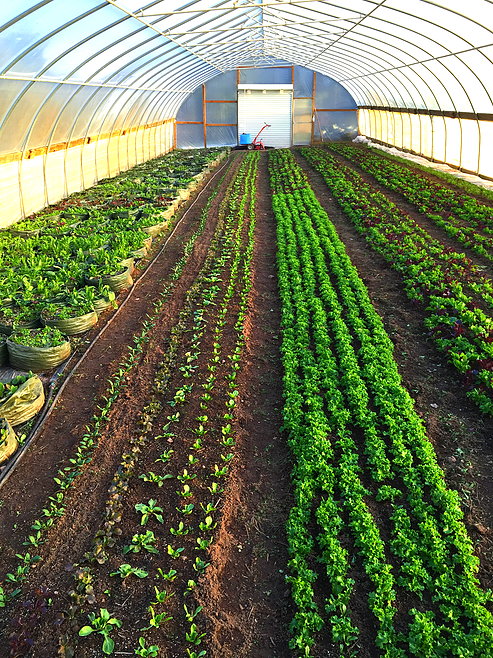
As Jo explains, “Virginia Growers assures the great chefs of Virginia a reliable and growing source for quality local produce, and will help keep the local food supply growing beyond what our particular farm can produce.”
As for the future, Jo says, “It will be interesting to see how it evolves. Our two children work in urban planning and academia. They have put in time here growing up, and they certainly enjoy the food!” But it doesn’t appear they’ll move back to the farm as its next generation. “What we know,” Jo says, “Is we want to share with others the opportunities this place has given us, whether Manakintowne continues as a family farm, an employee owned farm, or an educational farm.”
When asked what the word “family farmer” means to her, Jo says, “In our case, it means a family of people sharing a connection to the land and working in community for the community.” And that sums up perfectly what Manakintowne Farm has grown. Several of the farm’s employees have been with the farm so long Jo and Rob have seen their kids grow up. “There is a lot of love, sweat and tears behind every bite,” Jo says. The loyal chefs who have been sourcing good food from Manakintowne Farm for decades agree, using phrases like “exquisite,” “as good as it gets,” and “beyond compare” to describe the hard work of Jo and Rob. These two visionaries, and the community they’ve nurtured, are truly growing the good food movement in Central Virginia!
Manakintowne Farm is in this year's Farm Aid concert region! Learn more here.